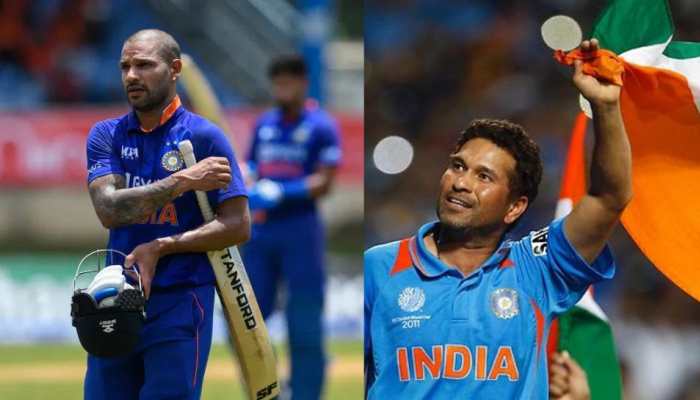Healthy Eating: Dos and Don'ts; should you stop consuming carbs - check expert's advice
'Eat healthily' is a common piece of advice we get. But in a world bombarded with information and where, from hundreds of health sites to social media posts - everyone has tips on what's healthy, it is easy to get confused. Here's decoding healthy eating.
- Eating food that is as near to how nature intended it may have a profound impact on how you feel, look, and think, say experts
- Obesity or excessive weight gain in a short period of time are direct effects of poor eating choices that can adversely affect our health
- A well-balanced, nutritious diet is key, fad diets don't work
Trending Photos
) Pic courtesy: Pixabay
Pic courtesy: Pixabay New Delhi: The most common advice you will get about staying healthy is this - eat a nutritious diet! But what is a nutritious diet? In a world bombarded with information and where, from hundreds of health sites to social media posts - everyone has tips on what's healthy, it is easy to get confused. "It's not necessary to make healthy eating difficult. You're not alone if you feel overloaded by the contradicting nutrition and diet recommendations available. It appears that for every expert who says a particular cuisine is healthy, there are two more who suggest the exact opposite. In actuality, although certain particular foods or minerals have been found to have a positive impact on mood, your entire dietary pattern is what matters most. Real food should always be preferred above processed food as the cornerstone of a balanced diet. Eating food that is as near to how nature intended it may have a profound impact on how you feel, look, and think," Amarnath Halember, Executive Director and CEO, NextG Apex India Pvt Ltd tells IANS Life. He adds, "After consuming bad food for a while, switching to a healthy diet may be a little challenging for you, but with time and work, you will become accustomed to it and finally lead a healthy life."
The dangers of improper eating behaviours
As Amarnath points out, obesity or excessive weight gain in a short period of time are direct effects of poor eating choices that can adversely affect our health. "Next on the list are issues including delayed brain growth, memory loss, high blood pressure, diabetes, heart ailments, and weak bones. In order to stay healthy, it is essential to eat properly and healthfully," he says.
Healthy Eating: What does it mean?
There are several misconceptions about healthy eating and experts warn that going on extreme or fad diets doesn't help. A well-balanced, nutritious diet is key. "This means eating everything in the proper quantities, at the proper times, and in the proper combinations. Don't fully cut off fats or consume too much protein and fibre! Also keep in mind that as youngsters are still developing physically and mentally, they should be provided with a variety of foods," says Amarnath.
Proteins, fats to carbs, role of Nutrients in healthy living
For a well-balanced diet, macro-nutrients like proteins, carbs, lipids, vitamins, minerals, water, and fibre are all essential. Each of these nutrients is important in its own way. An imbalance of any of these nutrients can affect our health adversely.
Proteins: A crucial component that needs to be a part of our regular diet. To create new tissues and regenerate existing tissues, proteins are required. People who are on a diet frequently stop eating any protein. This may weaken the muscles, leaving them more vulnerable to injury, which is not very healthy.
Carbohydrates: Carbohydrates are your body's primary energy source and serve as its power providers. An enormous amount of energy is required by adults and teenagers. It is crucial for your health and development, as well as for boosting metabolism and keeping you active all day. Consuming enough carbs in your diet will stop proteins from turning into fat.
Fat: Experts say that people should get rid of the false belief that fats are unnecessary for a healthy diet. Even if only omega-3 and 6 fats and unsaturated fats should be included in your diet, fats are still highly important. Fats create cell membranes and offer energy. A, E, D, and K vitamins among others require fat to be absorbed. Hormone production is aided by fat. The layer of fat that forms beneath our skin serves as a barrier for our muscles while also keeping us warm.
Vitamins and Minerals: Even though they are needed in lower amounts than proteins and carbs, these nutrients are nevertheless vital for our body. Even in little amounts, they should be a part of our regular diet because a lack of any one of them can have major negative effects on health.
Fibre: For our bowel motions to return to normal, we need fibres. Additionally, they aid in the prevention of several severe chronic illnesses including diabetes, cancer, and cardiovascular disorders.
Iron: It is a necessary ingredient that promotes brain cell growth, keeps our haemoglobin levels stable, and improves focus.
Calcium: It strengthens and helps to build teeth and bones, which keeps them from breaking. Getting enough calcium through our food also lowers our risk of getting osteoporosis.
(Inputs from IANS)
Also read: Male fertility: Myth busted! There's a biological clock for men too; find out the RIGHT AGE for men to have kids
Stay informed on all the latest news, real-time breaking news updates, and follow all the important headlines in india news and world News on Zee News.
Live Tv







)
)
)
)
)
)
)
)
)
)
